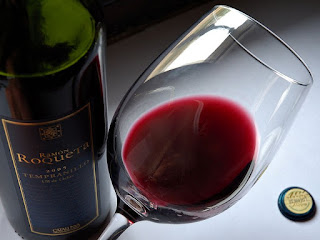< No earlier items | Index | Healing at a distance >
Jesus was invited to a wedding in the village of Cana. While the wedding reception was still under way the wine ran out. How embarrassing for the bridegroom! There is so much to learn from the people and events in Cana that day.
This is the first sign in John's gospel. Just to recap, here is John's explanation about the inclusion of this sign in his book about Jesus.
'Jesus performed many other signs in the presence of his disciples, which are not recorded in this book.'
'But these are written that you may believe that Jesus is the Messiah, the Son of God, and that by believing you may have life in his name.' (John 20:30-31)
Now read John's account of this first sign.
On the third day a wedding took place at Cana in Galilee. Jesus’ mother was there, and Jesus and his disciples had also been invited to the wedding. When the wine was gone, Jesus’ mother said to him, ‘They have no more wine.’
‘Woman, why do you involve me?’ Jesus replied. ‘My hour has not yet come.’
His mother said to the servants, ‘Do whatever he tells you.’
Nearby stood six stone water jars, the kind used by the Jews for ceremonial washing, each holding from eighty to a hundred and twenty litres.
Jesus said to the servants, ‘Fill the jars with water’; so they filled them to the brim.
Then he told them, ‘Now draw some out and take it to the master of the banquet.’
They did so, and the master of the banquet tasted the water that had been turned into wine. He did not realise where it had come from, though the servants who had drawn the water knew. Then he called the bridegroom aside and said, ‘Everyone brings out the choice wine first and then the cheaper wine after the guests have had too much to drink; but you have saved the best till now.’
What Jesus did here in Cana of Galilee was the first of the signs through which he revealed his glory; and his disciples believed in him. (John 2:1-11)
We'll go through the four questions in turn, and although I'm not going to provide answers I will try to point you to where those answers might be found.
What does this story tell us about people? - There are several people in this short passage, consider them carefully one by one. Bear in mind that the people in the story are just like us; although they lived two thousand years ago they have the same characteristics and motivations and do the same sorts of things.
The disciples are mentioned twice, near the beginning and again at the end.
Jesus' mother knew her son just as any mother would. What does she do and how does she respond to what he tells her?
Don't forget the servants, they are easily overlooked. Remember that servants would not be expected to chat with the guests, but they would be expected to be attentive and do whatever they were told. What do you think they might have been thinking as they took the water to the MC?
Then there's the Master of Ceremonies, he's supposed to be in charge but he doesn't seem to have noticed where the new supply of wine came from. In what ways are we like him? He was familiar with the little tricks people often use, do you sense his surprise? What does this tell you about people?
And how do you suppose the bridegroom felt when the wine ran out? Why might this have happened? (I can think of several plausible reasons.) Have you ever been in a situation where you were responsible for something important and didn't get it quite right?
What does it tell us about Jesus? - Was Jesus stuffy and religious? Notice that he was invited to a party and was happy to be there. Is he aloof or approachable?
Why do you think he says one thing to his mother and then seems to do the opposite? Who told him it wasn't time yet, and who told him, 'Now is the time'? Remember that he said, 'I only do what I see the Father doing'. Is he being difficult, or just being obedient? Compare this with John 7:8-10.
What do we learn about his power and authority in the world?
Does he do everything himself or does he send others?
What does it tell me about myself? - Are you like any of the people in this story? In what ways?
Who else needs to hear this? - Do you know people who need to hear this story, this 'sign'? If so, who is going to tell them? Could you share this with others individually? Could you share it with a group of friends?
Additional points - The wine had run out so there must have been plenty of empty wine jars and/or wineskins around. So why did Jesus used the hand-washing water jars? Would you want to drink washing water?
Consider using this blog post as a discussion outline for a CU meeting or for a home group or cell group. Use it as part of a Bible study or for informal sharing. There are all sorts of possibilities.
< No earlier items | Index | Healing at a distance >





